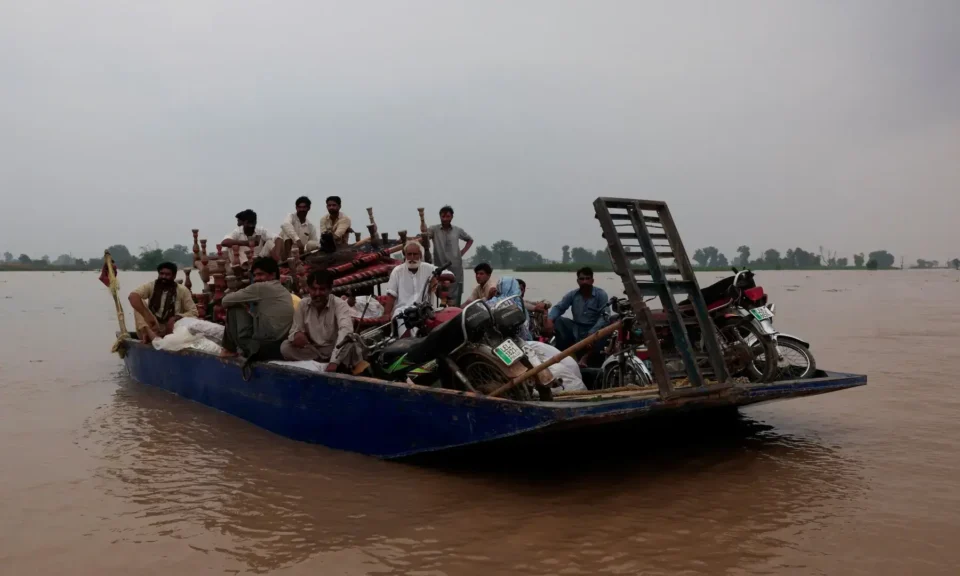Flood-Hit Border Villages Struggle for Relief as Families Refuse to Leave Livestock Behind
Kasur: Along the Pakistan-India border, rural farming communities devastated by floods are facing heartbreaking choices — protecting their families or abandoning the livestock that represents their livelihood.
At a relief camp set up by Rangers near the Talwar Post, 40-year-old Javed Ali arrived with his wife, toddler daughter, and extended family after being rescued by boat. His village, Nagar, was surrounded by floodwaters three days earlier.
“I kept calling helplines and welfare groups, but no help came until today,” Javed shared. His daughter now suffers from fever and skin rashes caused by floodwater, while his wife and niece show similar symptoms. At the medical camp, they were given basic treatment before planning their uncertain journey to relatives in Bhai Pheru.
Floods Submerge 16 Villages
The once-thriving villages near the border are now submerged by the overflowing Sutlej River. From the embankments of Rajiwala Road, floodwaters stretch as far as the eye can see.
This relief point has become a gathering place for families from around 16 villages, all forced out of their homes. Many brought their cattle with them, knowing their survival depends on their animals.
Struggling to Save Livestock
For villagers like Salman, a young farmer, saving his animals meant everything. “There is nothing left in our houses. All we had were these sheep and cows,” he said while tending to 50 sheep he rescued in a rickety boat 11 days ago.
Others, like Mushtaq and Shahid from Bhikhiwind, have tied their cows and buffaloes near the camp. “This year, the water is higher than anything we’ve ever seen,” they said. With all 25 families from their village evacuated, the main concern remains fodder and food.
Residents complain of little government assistance. “Only Al-Khair and Al-Khidmat Foundation helped us with food,” Mushtaq noted, while officials at the camp denied these claims, insisting aid was being distributed fairly.
Relief Efforts and Challenges
Rescue operations are still ongoing, with boats and locally-made rafts (known as Baira) ferrying stranded families, livestock, and belongings. Muhammad Farooq, a volunteer, uses his raft daily to bring people and animals to safety. He receives diesel support from the district administration but bears the rest of the responsibility himself.
Meanwhile, many families are still trying to salvage what little remains. Asif, from Changa Singh, returned to his flooded home to save his wheat stock, moving it to rooftops in the hope of keeping it dry. But heavy rains threaten to destroy even those efforts.
A Humanitarian Crisis Beyond Shelter
For flood victims, the struggle is not only about homes but also about the survival of their livestock. With food shortages, poor medical support, and damaged farmlands, these border communities now face an uncertain future.

